Department of
INFORMATION TECHNOLOGY
ABOUT THE DEPARTMENT
The Department of Information Technology was started in the year 1998-99 with an intake of 40 students. In tune with the growing demand profile globally for IT, the intake level was enhanced to 60 in the year 2000. The Department is accredited by NBA and by NAAC with ‘A’ Grade for the period of five years. Our vision is to transform our department into a quality hub, by providing technology updated education with ethical values. We have professional membership with various reputed societies like CSI, ISTE and IEEE.
We have signed MOU’s with various reputed industries and with that relationship we are organizing several Guest Lectures, Workshops, Skill Development Programs, Value Added courses and Industrial Visits. The Department has the state-of the art facilities for various labs with newly configured machines and Latest IBM Servers, well equipped Seminar halls with Smart board facility, Capacious class rooms to support e-learning and a Department library. The Department also has 100 Mbps of Internet Connectivity.
DEPARTMENT
VISION & MISSION
VISION:
- To aspire excellence in providing education in Information Technology and research through innovation, ethical practices, and sustainable technological solutions to meet industrial and societal needs.
MISSION:
Education
- To impart quality education and promote active learning in Information Technology by nurturing analytical, critical, and innovative thinking to prepare students for global challenges.
Research
- To encourage cutting-edge research and foster collaboration with industry partners, leveraging cognitive skills to develop innovative and impactful solutions in the field of Information Technology.
Sustainable Solutions
- To uphold ethical standards while designing multi-disciplinary, sustainable technological solutions that address real-world problems.
Industry and Society
- To bring synergy between academia and Industry through curriculum with state of art technologies which meets industry and societal needs.
PROGRAMME EDUCATIONAL OBJECTIVES (PEOs)
- Demonstrate core competence in basic engineering and mathematics to design, formulate, analyze, and solve hardware/software engineering problems.
- Develop insights in foundational areas of Information Technology and related engineering to address real world problems using digital and cognitive technologies.
- Collaborate with industry, academic and research institutions for state-of-the- art product development and research.
- Inculcate a high degree of professionalism, effective communication skills and team spirit to work on multidisciplinary projects in diverse environments.
PROGRAMME OUTCOMES (POs)
Engineering knowledge: Apply the knowledge of mathematics, science, engineering fundamentals, and an engineering specialization to the solution of complex engineering problems.
Problem analysis: Identify, formulate, review research literature, and analyze complex engineering problems reaching substantiated conclusions using first principles of mathematics, natural sciences, and engineering sciences.
Design/development of solutions: Design solutions for complex engineering problems and design system components or processes that meet the specified needs with appropriate consideration for the public health and safety, and the cultural, societal, and environmental considerations.
Conduct investigations of complex problems: Use research-based knowledge and research methods including design of experiments, analysis and interpretation of data, and synthesis of the information to provide valid conclusions.
Modern tool usage: Create, select, and apply appropriate techniques, resources, and modern engineering and IT tools including prediction and modeling to complex engineering activities with an understanding of the limitations.
The engineer and society: Apply reasoning informed by the contextual knowledge to assess societal, health, safety, legal and cultural issues and the consequent responsibilities relevant to the professional engineering practice.
Environment and sustainability: Understand the impact of the professional engineering solutions in societal and environmental contexts, and demonstrate the knowledge of, and need for sustainable development.
Ethics: Apply ethical principles and commit to professional ethics and responsibilities and norms of the engineering practice.
Individual and team work: Function effectively as an individual, and as a member or leader in diverse teams, and in multidisciplinary settings.
Communication: Communicate effectively on complex engineering activities with the engineering community and with society at large, such as, being able to comprehend and write effective reports and design documentation, make effective presentations, and give and receive clear instructions.
Project management and finance: Demonstrate knowledge and understanding of the engineering and management principles and apply these to one‘s own work, as a member and leader in a team, to manage projects and in multidisciplinary environments.
Life-long learning: Recognize the need for, and have the preparation and ability to engage in independent and life-long learning in the broadest context of technological change.
PROGRAM SPECIFIC OUTCOMES (PSOs)
PSO1: Ability to apply programming principles and practices for the design of software solutions in an internet-enabled world of business and social activities.
PSO2: Ability to identify the resources to build and manage the IT infrastructure using the current technologies in order to solve real world problems with an understanding of the tradeoffs involved in the design choices.
Programmes OFFERED
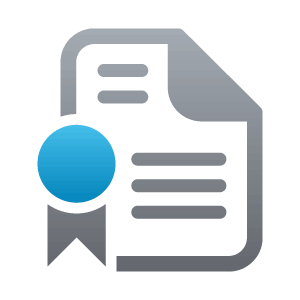
B.TECH.INFORMATION TECHNOLOGY
HIGHLIGHTS
- Accredited by National Board of Accreditation.
- The Department received Rs.40 Lakhs from DST-FST.
- The Department received funds from ICMR, AICTE & top organizations for conducting FDP, Workshops, Seminars & other events.
- The department has a library with over 917 books & back volumes.
- Students are motivated by doing in-House projects.
- Our students received “Best outgoing student award “for 3 consecutive years.
- Achieved Guinness Record “To portrait of Dr. A.P.J Abdul Kalam Face” by our student.
- The students are taken for Industrial Visit and they undergo in-Plant training in reputed organizations to obtain technical knowledge in their relevant field.
- The Department has set up of Coding Club Activity.
- The faculty are members of professional bodies like IEEE, CSI, ISTE, ACM etc.
- Every year the department conducts a National Level Technical Symposium – DESPOTIX.
- The department conducts a National Conference every year for the benefit of Faculty and Student Community.
- FDP, Workshops, Seminars etc. are conducted for upgrading the skills of Faculty & Students.
LIST OF FACULTY
| S.NO. | NAME OF THE FACULTY | DESIGNATION | QUALIFICATION | DOJ |
| 1 | Dr.AHMED MUDASSAR ALI | Professor & Head of the Department | PhD | 01.06.2001 |
| 2 | Mrs.A.M.SERMAKANI | Associate Professor | M.E. | 13.08.2007 |
| 3 | Dr.M.GEETHA | Professor | PhD | 01.06.2023 |
| 4 | Ms.S.JULIA FAITH | Assistant Professor | M.TECH. | 14.06.2012 |
| 5 | MrsT.VEENA | Assistant Professor | M.TECH. | 14.06.2012 |
| 6 | Mrs.D.CHITHRA | Assistant Professor | M.E. | 20.12.2019 |
| 7 | Mr.P.SENTHIL | Assistant Professor | M.TECH | 08.06.2017 |
| 8 | Mrs.S.KRISHNAVENI | Assistant Professor | M.E. | 13.07.2021 |
| 9 | Mrs.S.ASHA | Assistant Professor | M.E. | 13.07.2021 |
| 10 | Mrs.HIMA VIJAYAN | Assistant Professor | M.TECH | 15.07.2022 |
| 11 | Mrs.A.SEETHA | Assistant Professor | M.E. | 02.03.2023 |
| 12 | Mrs.K.VALARMATHI | Assistant Professor | M.E. | 15.07.2021 |
FACULTY
HEAD OF THE DEPARTMENT
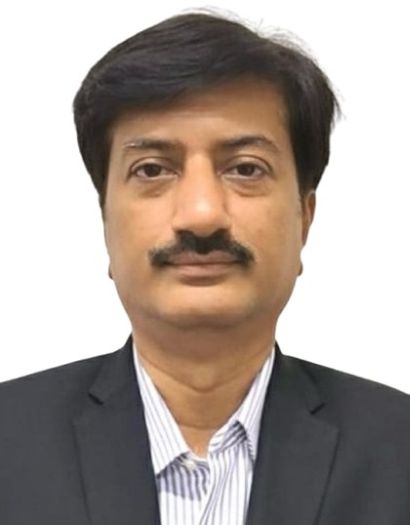
Dr. AHMED MUDASSAR ALI
PROFESSOR
SPECIALIZATION: WEB MINING
PROFESSOR

Dr. M. Geetha
PROFESSOR
SPECIALIZATION: AUTOMATA THEORY, AI WITH MACHINE LEARNING AND COMPUTATIONAL INTELLIGENCE
ASSOCIATE PROFESSOR
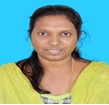
Mrs.A.M.SERMAKANI
ASSOCIATE PROFESSOR
SPECIALIZATION: CLOUD COMPUTING, BIG DATA ANALYTICS, DATA MINING
ASSISTANT PROFESSORS
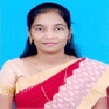
Ms.S.JULIA FAITH
ASSISTANT PROFESSOR
SPECIALIZATION: NETWORKS, BIG DATA ANALYTICS
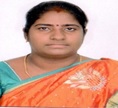
Mrs.T.VEENA
ASSISTANT PROFESSOR
SPECIALIZATION: ARTIFICIAL INTELLIGENCE
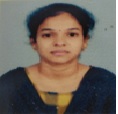
Mrs. D.CHITHRA
ASSISTANT PROFESSOR
SPECIALIZATION: NETWORKING
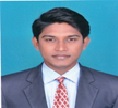
Mr.P.SENTHIL
ASSISTANT PROFESSOR
SPECIALIZATION: SOFTWARE TESTING

Mrs.HIMA VIJAYAN
ASSISTANT PROFESSOR
SPECIALIZATION: ARTIFICIAL INTELLIGENCE
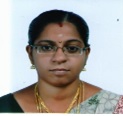
Mrs.S.KRISHNAVENI
ASSISTANT PROFESSOR
SPECIALIZATION: ARTIFICIAL INTELLIGENCE
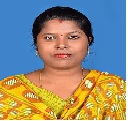
Mrs.S.ASHA
ASSISTANT PROFESSOR
SPECIALIZATION: PROGRAMMING LANGUAGES & DATA STRUCTURE
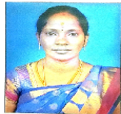
MRS. A. SEETHA
ASSISTANT PROFESSOR
SPECIALIZATION: ARTIFICIAL INTELLIGENCE, DEEP LEARNING

MRS. VALARMATHI K
ASSISTANT PROFESSOR
SPECIALIZATION: ARTIFICIAL INTELLIGENCE,
NETWORKING
